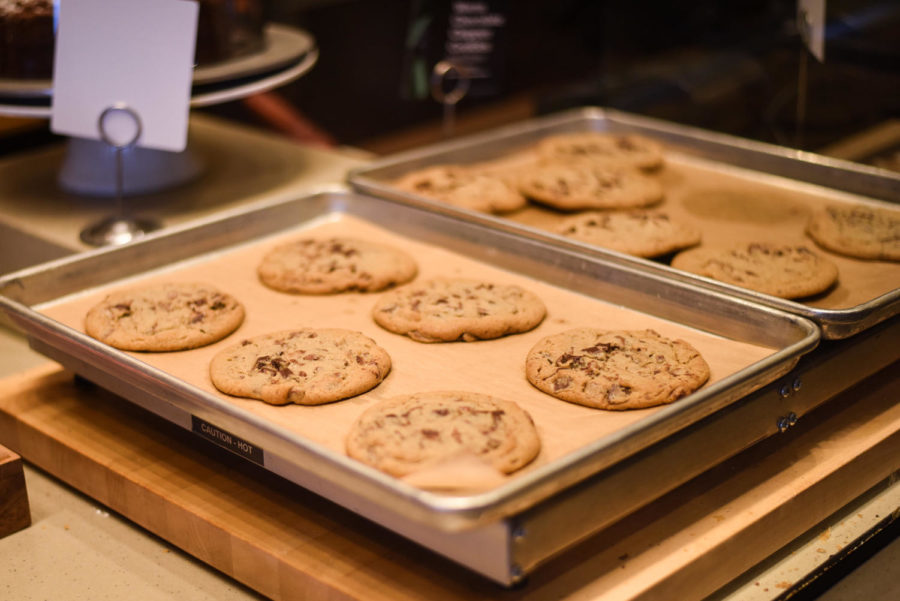For obvious reasons, this past year was a unique experience for most students at the University of Massachusetts. Yet, I had a more unusual experience than most.
After COVID-19 sent the entirety of the student body home, I was cooped up in my room for the majority of the spring. Even in my efforts to escape the virus, I ended up catching it in early April with mild cold-like symptoms for a few days. I hadn’t even considered it being COVID-19 until the symptoms died down. My sinuses were cleared, but my sense of smell and taste were missing completely.
At first, it was almost a novelty. I could eat whole lemons, garlic cloves and onions with no reaction. Garbage trucks, dumpsters and skunks left me unfazed.
At the time, the loss of smell, known as anosmia, associated with the coronavirus was a largely surprising revelation. Anosmia is not a particularly common symptom for many medical issues, and so medical professionals were reluctant to consider it a major symptom in the earliest days of the pandemic, when little research had been done. Soon, though, studies came out showing an alarmingly clear link between smell loss and the coronavirus.
In the beginning, I didn’t understand the full scope of my anosmia. My doctor told me my smell should return within a few weeks or months. I went day-by-day expecting to experience some smell, thinking that once I did my senses would return back in full force. But days turned into weeks and weeks into months. Spring turned into summer. I wasn’t experiencing the smell of freshly cut grass, of sizzling barbeques or of a salty sea breeze. In the season where we smell the most, I was living life in black and white.
Smell has long been considered the least important sense by many. Smell is something so innate to our existence that we hardly even notice it. And yet, I learned, it is a vital component of everything we experience.
The science behind smell, usually considered an obscure science, has been neglected for most of history. Charles Darwin called it “of extremely slight service” to anyone at all. Most scientists in the early 1900s believed that humans were inadequate at smelling, and those that did pay attention to it were concerned with classifying smells. They were not interested what smell does to us nor how we smell.
This changed in the 1990s, when Richard Axel and Linda Buck discovered the receptors around humans’ olfactory system, the sensory system in our nose where smell is processed. They found that humans were, in fact, very adequate at smelling – and later studies have shown that we can process over a trillion smells. Our sense of smell is intense; such that we can detect when a female fly has been in a glass of wine. Smell is intrinsically associated with our body’s most important functions.
Because of COVID-19, science is now treating smell with the utmost importance. New studies show that the coronavirus infects the cells that support neurons in our nose. Smell is also deeply wrapped up in our taste and chemesthesis, the sensations we feel when chemicals trigger receptors that involve other senses. The burn of a chili pepper, the stinging of carbonation and the sharpness of mouth wash are all examples of chemesthesis. COVID-19 can have adverse effects on both of these as a result of smell loss – and given the relatively recent nature of the virus, the science around this is significantly less understood.
With my smell loss, both my taste and chemesthesis was hindered. Any taste I do experience is at the most subliminal level – salty, bitter, sweet, sour – or nothing at all. The complexity of food has been lost from me completely. Spicy foods aren’t as effective anymore, nor are other chemesthesis based reactions. I enjoy eating less, even my once favorite foods.
For months, I experienced no smell at all. Eventually, I was able to perceive very slight scents – usually very strong scents. These scents all seemed to be abhorrent and disgusting, an effect known as parosmia.
By the beginning of fall, I was mentally exhausted with these issues. It felt as if I had lost a fundamental sense of my person. Not helping was that the fall and winter seasons are so closely associated with smell and taste – the smell of fire, a freshly cut pine tree and warm deserts. Not only was I stuck in quarantine, but I was also stuck in my anosmia.
Now, as I approach a year without smell, I am beginning to understand the loss. I know what foods I can enjoy, and I’ve become used to its absence. I appreciate what sense I do have and cherish what I experience.
COVID-19 is not something to take lightly. It has killed millions and infected millions more. In the year since my smell was lost, I have seen flagrant disregard for safety, especially amongst people who may consider themselves safe from the virus. But most people with the virus experience some extent of smell loss. For most, these senses return within a few months. For others – they do not. These effects may be permanent.
Take it from me, you will not understand the importance of your sense of smell until it’s gone.
Derek Hunter can be reached at [email protected].



















